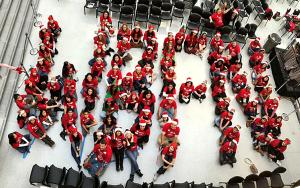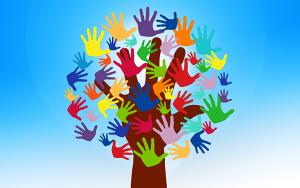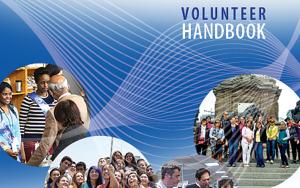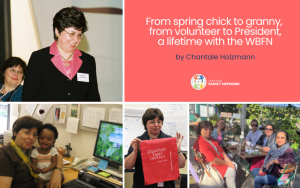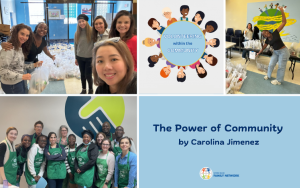
Simple tasks can become uniquely challenging for someone with a disability. Just to communicate effectively, or be mobile, or get through a school day, a child might need a broad support system that will include doctors, medications, special education classes, a psychiatrist, a psychologist, speech and occupational therapy, a particular diet, a carefully structured and maintained environment, a talented additional caregiver. A spouse might be severely limited and home-bound after a stroke. An elderly parent might have dementia and need constant care.
What happens to this support system after relocation? How do you go about building it up in a new country where you don’t understand the medical system, school options, the language, legal rights, and you don’t have family nearby to help? Even if you have lived in the Washington DC area for some time, dealing with a new diagnosis of a disability means a steep learning curve.
These are the challenges that the WBFN wants to help families with. In May, the WBFN launched the Disabilities Program which has a mandate to gather and share information about support systems for families with a member with disabilities.
The Disabilities Program launch began with a presentation by Jeanette Kah Le Guil, a staff member with personal experience of disabilities in her family. Jeanette gave an overview of The Americans With Disabilities Act, “a comprehensive declaration of equality for people with disabilities” which prohibits discrimination and ensures equal opportunities in federal programs and services (such as the services your child has a right to in schools, and even in American schools overseas). Jeanette explained that anyone is protected under the ADA, regardless of origin or visa status. Children between three and twenty-one are specifically covered by IDEA, the Disabilities Education Act, which falls under the ADA.
Jeanette is involved in the leadership of the ADA National Network, and works to educate WBG families in the US on the rights of their child or adult with disabilities. She invites any member of the WBG community to contact her with questions.
The second presenter at the launch was Gillian Rai, an occupational therapist with a holistic-based approach, who addressed the psychological issues associated with caring for a child with disabilities. She noted the ongoing and often stressful challenge for a parent to help their child fit into systems not designed for disabilities, such as schools, social groups, and activities. This kind of stress makes self-care for the parent an important concern. A parent who is perpetually fighting for their child’s physical and emotional health can have a high level of stress and anxiety, punctuated at times by real fear. A parent needs to address these issues, preferably with a therapist, to be the best advocate for their child.
Gillian also promotes a strength-based model of care for the child, focusing on strengths rather than impairments. Citing research, she commented that the most common obstacle in a child’s progress can be found in the attitude of the adults and organizations caring for the child. “Disability is not a barrier,” she emphasized.
Parents of children with disabilities also attended the launch. Their questions and the informed way they responded to each other highlighted another service that the WBFN intends to establish with the Disabilities Program i.e. a platform for sharing experience and advice, which will help newcomers to be plugged into a network of parents and other members who know what support and resources are available in the area.
The Disabilities Program team is currently working to centralize resources in a database for newcomers, or members with a new diagnosis, to use. The database will include: medical and health resources of all kinds, outreach organizations and programs, schools, sports and activities in the Washington, D.C area as well as some schools overseas. The team welcomes anyone who can add to this database by sharing information about the resources they recommend.*
A further aim of the Disabilities Program is to create peer group discussion for WBG families to share their experiences with others who are dealing with similar challenges.
The Disabilities Program launch is just the beginning of a long-term project to help those people in our community in need of specialized support and information during and after relocation.
*To find out more about the database, please contact Loubna Djemame: disability@wbfn–global.org
Restrict content to registered Users?:
0

